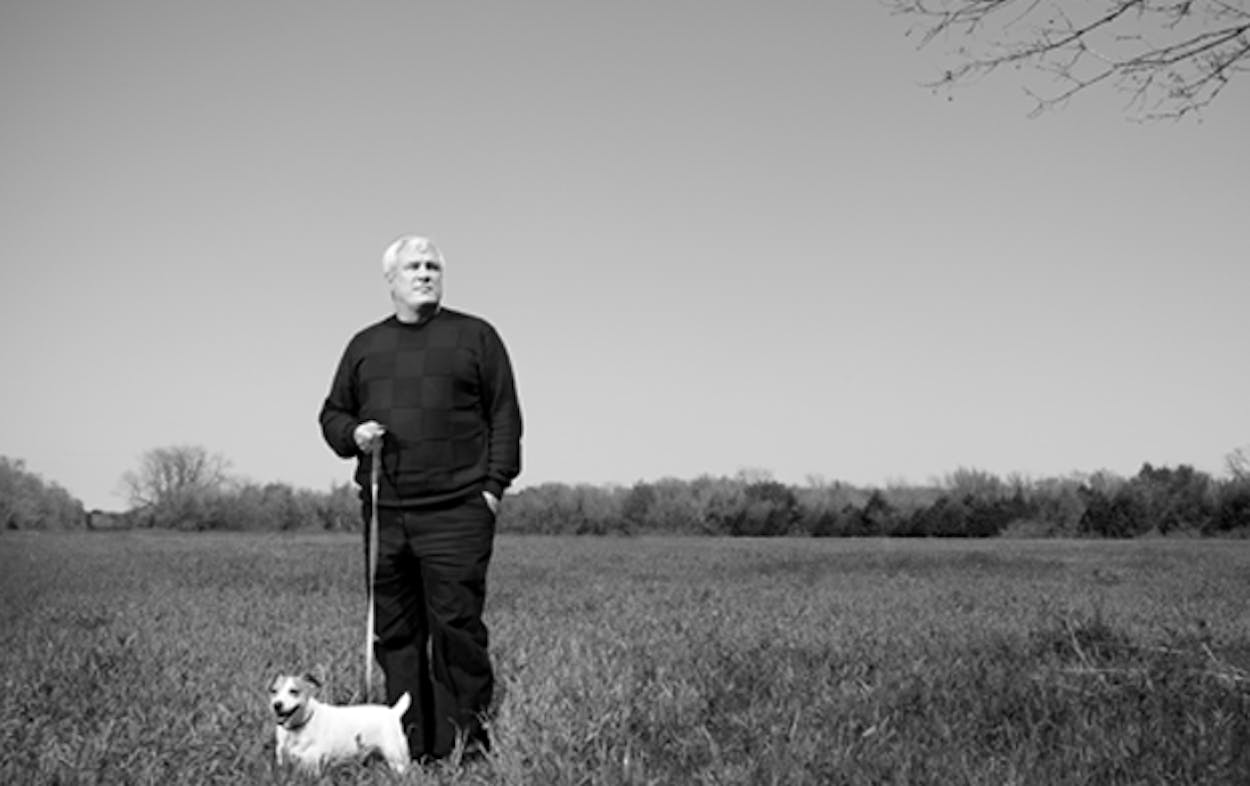Brandi Grissom of the Texas Tribune reports on a bizarre twist in the saga of Kerry Max Cook, who was in jail from 1978 to 1999 for a murder he did not commit, but has never been formally exonerated of despite two reversed convictions, a mistrial, and a “no contest” plea deal.
Wrote Grissom:
The prosecutor who sent Kerry Max Cook to death row in 1978 for a gruesome stabbing death has kept the blood-soaked murder weapon at his home for the last decade as a macabre “souvenir” of one of Tyler’s most infamous and brutal killings, according to a motion the former inmate’s lawyers filed Monday in Smith County.
Along with the knife, former Smith County District Attorney A.D. Clark III — now with the Texas attorney general’s office — also kept a slide with samples of Cook’s hair, the former inmate’s lawyers allege.
“The rather odd practice of Mr. Clark keeping evidence of a murder case in his personal possession raises many questions, both legal and psychological,” lawyers wrote in a motion asking an administrative judge to reconsider his decision last month to allow Cook’s case to remain in Smith County despite court findings of prosecutorial misconduct there in the past.
Clark said he completely denies the allegations “in every respect.”
Cook is still trying to formally prove his innocence with DNA testing and a new hearing. The allegation, which was attributed to former Smith County assistant district attorney Mike West, was part of a motion filed by Cook’s lawyers asking state adminstrative judge John Ovard to reconsider a previous decision to keep Cook’s latest hearing in Smith County.
As sensational as the alleged “souvenir” may be, its true significance is that it would be part of what Cook’s attorneys argue is a pattern of prosecutorial misconduct, including the destruction of physical evidence belonging to the murder victim, Kerry Jo Edwards.
“The destruction came just months after lawmakers passed the 2001 law that allowed for post-conviction DNA testing and required prosecutors to notify defendants before destroying evidence that might contain biological material,” Grissom wrote.
Cook’s attorneys also argue that the Smith County district court is beset with conflicts of interest. While the case is to be heard by state district judge Christi Kennedy, Kennedy serves on the court with A.D. Clark III’s wife, Judge Carole Clark, as well as Judge Jack Skeen, who succeeded Clark as county prosecutor on Cook’s subsequent trials.
On top of that, Grissom reported, “Skeen is also former prosecutor Clark’s first cousin. And Kennedy’s husband was an assistant district attorney under Skeen when he was prosecuting Cook.”
“[N]o Smith County judge should be permitted to preside over Mr. Cook’s case,” Cook’s lawyer, Marc McPeak, wrote in the filing.
Though Cook has been a “free” man for thirteen years, his muddled legal status continues to cause him great emotional distress, as well as present real-life obstacles. As TEXAS MONTHLY‘s Michael Hall wrote here in March:
Cook’s case is a deeply tragic one. He was one of the first of the modern wave of men to be freed after years of wrongful imprisonment. And yet Cook never experienced a profound public vindication. He never got to raise his arms high as he was cheered leaving the courthouse—like Morton recently did. He doesn’t get millions of dollars in compensation from the state for those wasted years—like the others do. He doesn’t have a brotherhood of fellow exonerees—like the men in Dallas have. He isn’t even, technically, an exoneree.
“Every day I fight against the darkest depression imaginable,” he says, “because of what Smith County did to me and continued to do to me for 35 years. First there was the horror of my prison experience as an innocent man, then my fate when I was freed, which in some ways was almost as bad. I developed severe PTSD. I was forced to move five times by people who found out about my past. Kids won’t play with my son because they find out he’s the son of a man who was on death row. My wife and I–we have no insurance. I can’t get an apartment, I can’t get a real job. It’s been unbelievable. Nobody knows what it’s like. It’s like I’m behind another set of bars. I’m not free.
“I want the official exoneration. I want what Ernest Willis and Tim Cole and Michael Morton got. I deserve it. It’s my turn.”







